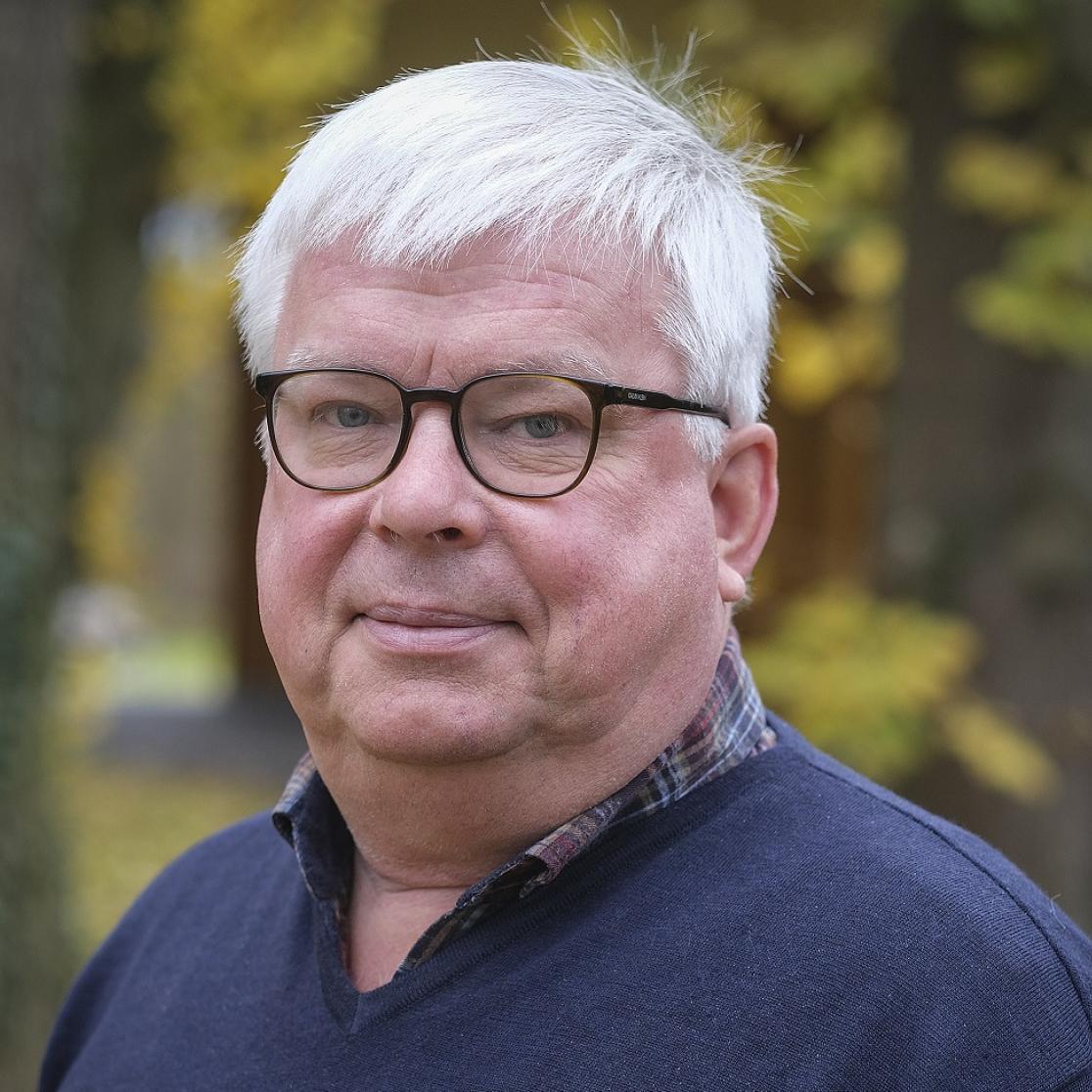200,000 people sitting on the sidelines in Limburg

Towards a strong, sustainable and inclusive labour market
In Limburg, about 200,000 people between the ages of 20 and 60 are sitting on the sidelines of the labour market. “Given the labour shortage in the Netherlands, this isn’t good for society. But it’s not good for these individuals, either. Being able to participate in society means having more structure and social contacts, which has a positive effect on people’s health”, says IJmert Kant, Professor of Occupational Epidemiology.
Kant is one of the five professors who together initiated the 4Limburg programme. “We realised we could accomplish more by bringing together various disciplines.” For years, sustainable employment of workers has played a major role in his research, which revolves around the question: how can employers help their employees stay fit and healthy?
Social assistance
Partly thanks to 4Limburg, IJmert Kant is also involved in a research project about returning to work and extending the concept of labour. “This project is specifically about people who fall within the Participation Act, which decentralised social assistance in the Netherlands. Municipalities are now responsible for social assistance recipients. Although the right to receive social assistance is the same in all municipalities, many municipalities are neither very efficient nor particularly successful when it comes to helping these people return to the labour market. Also, each municipality takes a different approach. Some offer half-hour conversations and that’s it. Others provide intensive support, but don’t achieve results either. This is also because not everyone is able to return to work. Finally, we see that some municipalities provide return-to-work support themselves, whereas others outsource it.”

- Starting date: 1-07-2019 end date 1-07-2022
- Funding: Project was funded by the Province of Limburg
- Project website: www.4-limburg.nl
Revolutionary
The question is, what is the best approach to reducing the number of people sitting on the sidelines? In other words, how can we help people become fit for work again? The municipality of Beekdaelen has developed its own concept which seems to be working well, says IJmert Kant. “I was immediately intrigued when I heard about it. In Beekdaelen, local and regional companies have taken on the responsibility of providing return-to-work support. It’s revolutionary. They have formed a cooperative that organises a weekly event where social assistance recipients and companies can meet each other and talk.” The municipality facilitates the cooperative and provides support by, for example, helping residents pay off their debts before they participate in the event. “In Beekdaelen, people are indeed returning to work in a sustainable way.”
Responsibility
The study, funded by the Netherlands Organisation for Health Research and Development (ZonMw), compares the Beekdaelen concept with the approach taken by the municipality of Landgraaf. Here, a company called the Mens Ontwikkel Bedrijf organises return-to-work support for social assistance recipients. People go through a process of conversations and gaining experience in workplaces set up for this purpose. “The Landgraaf approach also provides intensive support. The main difference with Beekdaelen is that the local business community in Landgraaf doesn’t carry the burden of responsibility. In Beekdaelen, by contrast, the participating companies are responsible from the beginning. Rather than having to present their CVs, people are asked the question, ‘How can we help you participate in society?’ So, ‘If you like working in the garden and being outside, let’s make a professional gardener out of you!’” Clubs and voluntary associations are now also being involved in the Beekdaelen cooperative, as participation isn’t just about work.
Self-esteem
In the study, researchers of the Occupational Epidemiology unit are working closely together with their colleagues from Work and Organisational Psychology. “As occupational epidemiologists, we study whether and why people return to work and the role their health plays in this. Psychologists look at other factors, such as what it means for people to regain their self-esteem and the role of labour force participation in this.” Regardless of the results of the study, several municipalities in Limburg are already showing interest in the Beekdaelen concept. “This fits nicely with what we want to achieve with 4Limburg. The idea is to roll out the concept to seven medium-sized municipalities and have it evaluated by researchers until 2025”, says IJmert Kant. He hopes that ZonMw, the Province of Limburg and municipalities will also be willing to support this new study financially. “We would like to add not just more municipalities, but also another target group: vulnerable young people. Finally, we want to study the effect of involving the voluntary sector in our cooperative approach.”
Text: Karin Burhenne
Translation: Emdash
4Limburg
The goal of 4Limburg is to create a strong, sustainable and inclusive labour market that is also accessible to vulnerable groups. 4Limburg is an integrated, multi-annual programme initiated by five professors at Maastricht University and developed by four faculties: Health Sciences, Social Law, Economics, and Work and Organisational Psychology. Their aim is to strengthen the socio-economic structure in Limburg in order to reduce the number of people sitting on the sidelines of the labour market. The implementation of the programme is in the hands of knowledge institutions, public administration, business partners and residents of Limburg. They focus on four themes:
- Proactive policy for young people and teacher labour market policy
- Increasing the sustainable employment of workers
- Inclusive organisations
- Extending the concept of labour
For more information, please visit: www.4limburg.nl
Research team
Initiators
The 4Limburg programme is an initiative of 5 professors of 4 faculties within Maastricht university:
- Faculty of Health, Medicine and Life Sciences:
Prof.dr. IJmert Kant, Professor of Epidemiology, specialising in Occupational Epidemiology
Prof.dr.ir. Maria Jansen, Em. Professor of Population-focused Health Policy - Faculty of Psychology and Neuroscience:
Prof.dr. Fred Zijlstra, Professor of Work and Organisation Psychology - School of Business and Economics/ROA:
Prof.dr. Andries de Grip, Professor of Human-capital formation and the Labour Market - Faculty of Law:
Prof.dr. Saskia Klosse, Professor of (European) labour and social secturity Law
The 4Limburg program has a steering committee consisting of the initiators , chaired by Prof.dr. IJmert Kant.
Scientific staff
- Prof.dr. IJmert Kant
- Dr.Nicole Jansen
- Dr.Ludovic van Amelsvoort
- Drs Ariane Colémont
- Dr. Jacqueline Jennen
Support staff
- Tanja de Bruijn
- Jos Slangen
- Petra Brouns.
Within specific projects there was also a close collaboration with Dr. Inge Houkes (social medicine), Dr. Ruben Drost (Health Services Reseach) and Drs. Marike Mulder (Mulder Arbeid en Gezondheid).

Contact
Prof.dr. IJmert Kant, Professor of Epidemiology, specialising in Occupational Epidemiology
ij.kant@maastrichtuniversity.nl
Collaborating partners
Within the 4Limburg program several regional collaborating partners including citizens, municipalities, knowledge institutes, companies, and societal /health organizations were involved. In the table below the number of collaborating partners per (sub) theme are listed here (in Dutch).
Our most important scientific output (Unit Occupational Epidemiology)
- Jennen, J. G. M., Jansen, N. W. H., van Amelsvoort, L. G. P. M., Slangen, J. J. M., & Kant, I. (2022). Chronic conditions and self-perceived health among older employees in relation to indicators of labour participation and retirement over time. WORK-A Journal of Prevention Assessment & Rehabilitation, 71(1), 133-150. https://doi.org/10.3233/WOR-210436
- Jennen, J. G. M., Jansen, N. W. H., van Amelsvoort, L. G. P. M., Slangen, J. J. M., & Kant I, (2021) Associations between depressive complaints and indicators of labour participation among older Dutch employees: a prospective cohort study. Int Arch Occup Environ Health 2021 Apr;94(3):391-407. doi: 10.1007/s00420-020-01584-9. Epub 2020 Oct 21.
- Jennen, J. G. M., Jansen, N. W. H., van Amelsvoort, L. G. P. M., Slangen, J. J. M., & Kant I, (2023) Associations between chronic condition(s), selfperceived health, and labour participation over time: a 16-year follow-up study; under review.
- Jennen, J. G. M., Jansen, N. W. H., van Amelsvoort, L. G. P. M., Slangen, J. J. M., & Kant I, (2023) The role of work engagement and chronic health conditions on different labour participation outcomes over time among older employees; under review
- Jennen, J. G. M., Jansen, N. W. H., van Amelsvoort, L. G. P. M., Slangen, J. J. M., & Kant I, (2023) Examining considerations towards early retirement across employees differing in health status and their implications for labour participation outcomes over time: a prospective study among older dayworkers; under review
- Polina Putrik; IJmert Kant; Huub Hoofs; Rianne Reijs; Maria Jansen (2023) Prediction of school dropout outside school setting: potential for early risk stratification by Youth Health Care services in the Netherlands", submitted to Child & Youth Care Forum.
Thesis
- Jacqueline Jennen: Relations between health status and labour participation outcomes among older workers over time. Thesis was succesfull defended on March 22 2023
Our most important output for societal target groups
As can be seen in the final report of phase 1 , the 4Limburg program has produced a very high output for different societal target groups. Output included new assessment tools, instruments, methodology as well as results of data analysis and interventions. The final report including all the 21 sub reports can be found here.
Phase 1 of the 4Limburg programme was evaluated by the Advisory board and an evaluation committee installed by the Province of Limburg. Both committees were very positive about the 4Limburg programme. They found the program highly relevant and very positive about the results obtained. Therefore, both committees recommended the continuation of the programme (phase 2). Unfortunately due to political changes, the Board of the Provincial Executive of Limburg decided not to continue the 4Limburg programme.4Limburg in the media
Newspapers
- De Limburger, 30 March 2019. Economische tijger Limburg dreigt te verhongeren, maar de wetenschap helpt.
Radio / TV
- L1 Vandaag. Theme week, March 2022: How Limburg works (interview IJmert Kant)
- L1 Avondgasten, June 2017. More labour participation in Limburg: Launch 4Limburg
Internet
- Centrum Inclusieve Arbeidsorganisatie. 4Limburg: Samenvatting Inventarisatie Bouwbedrijf
- IDEAS (largest bibliographic database dedicated to Economics). 4Limburg: Kwaliteit re-integratie data CBS.
- HBO Kennisbank. Nieuwe Start: kwalitatief onderzoek naar de factoren die kunnen bijdragen aan (re-) integratie op de arbeidsmarkt: Onderzoek in het kader van het project 4Limburg.